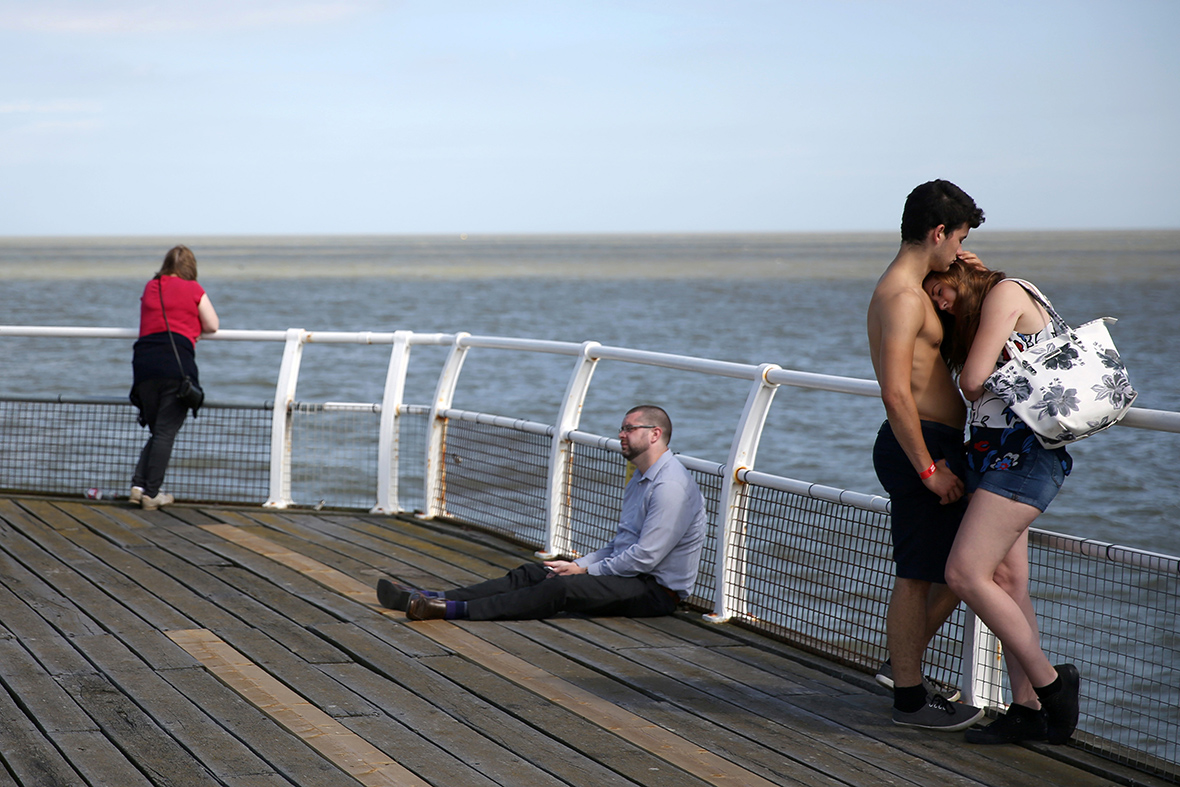Clacton-on-Sea: Leave voters left frustrated as Article 50 triggering is postponed
70% of residents voted 'out', which ultimately helped Britain secure the result in favour of quitting the EU.
Just over two months ago, Britain voted to leave the European Union, and for many residents of Clacton-on-Sea, a seaside town in Essex, this was a reason to celebrate. With a population of 55,000, 70 per cent of Clacton residents voted "out", which ultimately helped Britain secure it's 52/48 per cent result in favour of quitting the EU.



Yet the joyous victory has begun to fade in Clacton, and has been replaced by frustration at the lack of any clear progress towards making Brexit happen. Prime Minister Theresa May has told members of her government that Brexit would have to be delivered, and has ruled out any possibility of a second referendum, or any attempt to remain in the EU via the "back door". "We must continue to be very clear that 'Brexit means Brexit', that we're going to make a success of it," May told her cabinet of ministers, according to sources.


However, May has said she will not trigger Aricle 50 of the EU's Lisbon treaty, which would trigger the exit process until 2017, much to many of the leave voters annoyance. "We need to get moving," Janet Ford, 60, told Reuters reporter Sarah Young while at a Brexit-themed party held by UKIP in a pub in Clacton.
Clacton is the only town represented by the only member of parliament of the anti-EU UK Independence Party (Ukip). Ukip's year-long anti-EU campaign has contributed in the shaping of Britain's future.



Despite coming third in the 2015 general election with more than 12 per cent of the vote, Clacton remains the only seat in parliament. Ukip's success in the town is linked to the area's high retiree population, with one in three residents a pensioner. "We've seen the other side of it. We remember a better Britain," said Ford, suggesting a reason why older people in the area tend to vote for Ukip. Many pro-Brexit voters have a romanticised, nostalgic vision of Britain. The talk of a country which made it's own laws, unburdened by EU rules and remember when it was less crowded before thousands of people settled into the UK from other EU countries.







Clacton, with its pier of fairground rides that stretches around 300 metres off the shore, and with various of bed and breakfasts, used to be a destination for holidaying Britons before trips to Europe became popular from the 1960s onwards. Now, the town has an above-average unemployment rate with part of neighbouring Jaywick classified as the most deprived place in England.
"We need to get our country back," Graham Thornton, 53, who also voted leave, said to Reuters. "We need to get it back to the reality where everybody can earn a decent living, everybody can live in a decent home." Thornton does not want Theresa May to delay triggering Article 50. "We need to get out as soon as possible and then start talking about what (trade) deals we're going to get because it doesn't matter what deals we're going to get. Can we live on our own? You better believe we can," he said.
And with May and her government returning to work from the summer, Brexit will undoubtedly be at the forefront of discussion, and supporters in places such as Clacton will be there to make sure it remains the priority.









© Copyright IBTimes 2024. All rights reserved.






